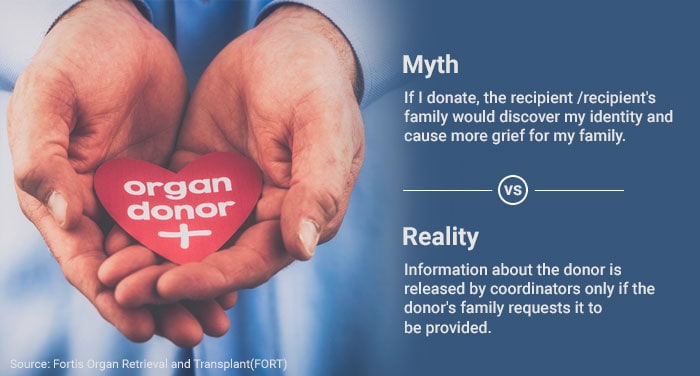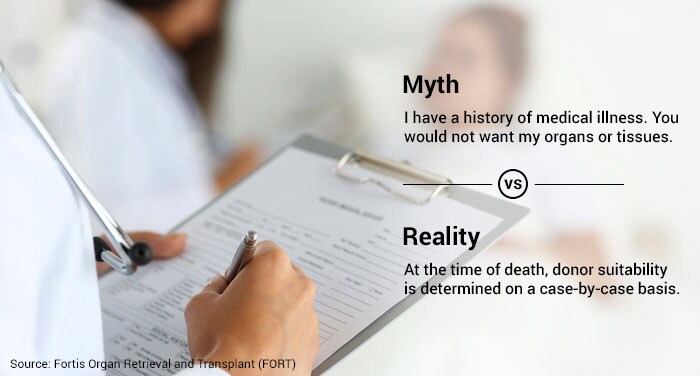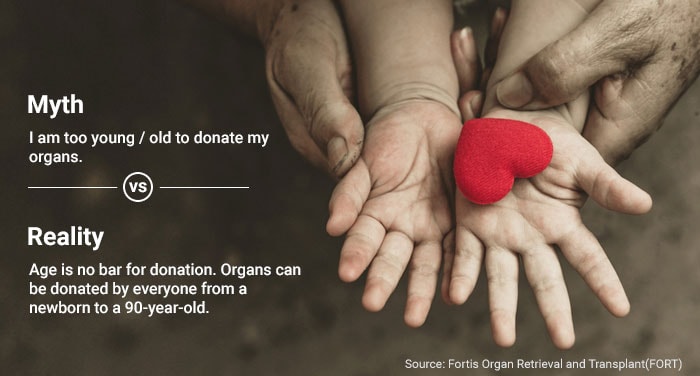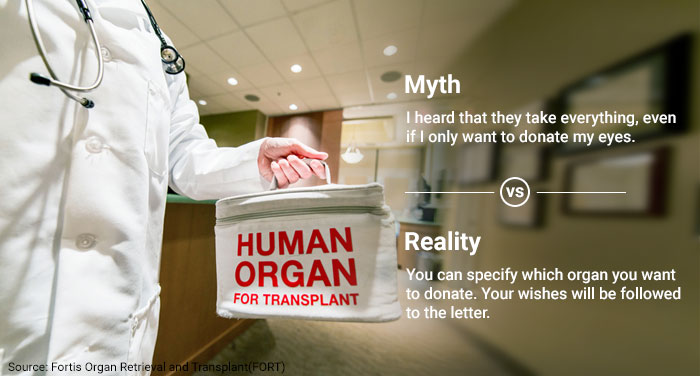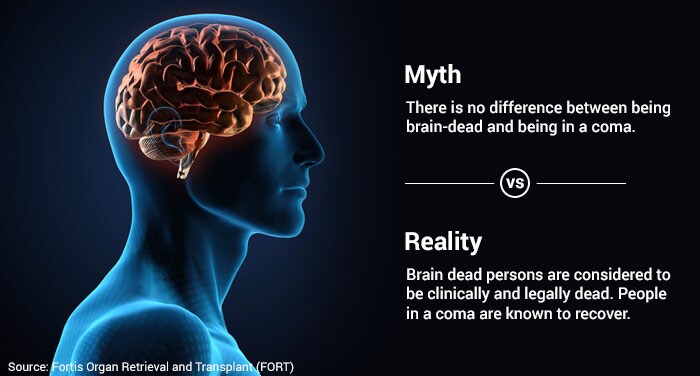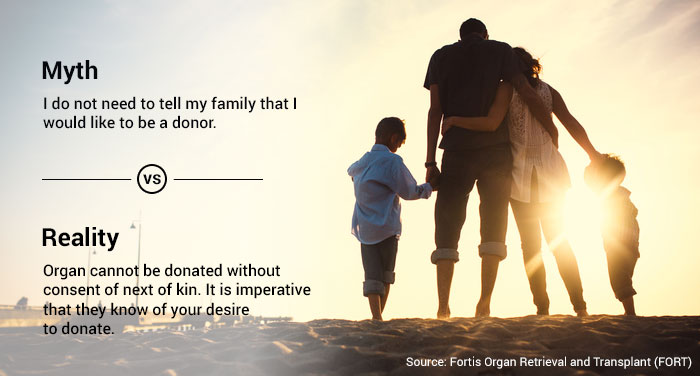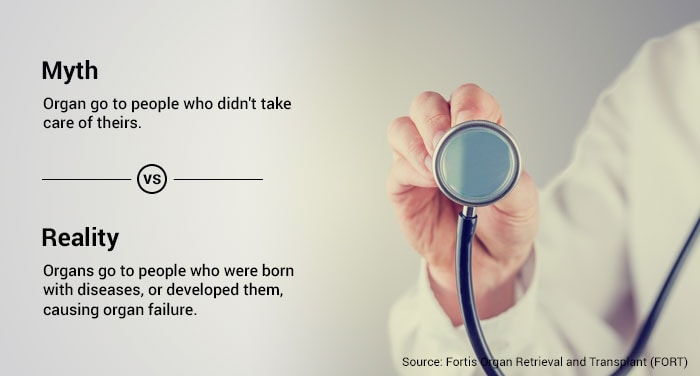Organ Donation: Don't Let These Myths Confuse You
For decades, myths and superstitions have held people back from pledging their organs. Don't let misinformation stop you from saving lives. To help, we've busted some of the most common misconceptions floating around with regards to organ donation.
-
Whether or not one can donate is determined after a thorough medical screening. Various medical tests are conducted to ensure that the donor's organs are fit to be transplanted, and that the donor is a match.
There are some medical conditions that automatically disqualify one from donating organs and tissues. It may also come to light that one may not be able to donate all organs - some may be fit for transplant, while others not so much. -
Brain death is not coma. Coma is a state of deep unconsciousness; there is activity in the brain. In a coma, the person can breathe normally without the help of a ventilator. The brain has capacity to heal. If one is declared brain dead, then there is no scope of recovery.
-
It is pertinent that family members know and agree with the individual's decision to donate. The individual's decision can be reversed by the family when the time comes. The final decision to donate rests with them.
From the time the family agrees to donate, they don't have to pay for anything.

